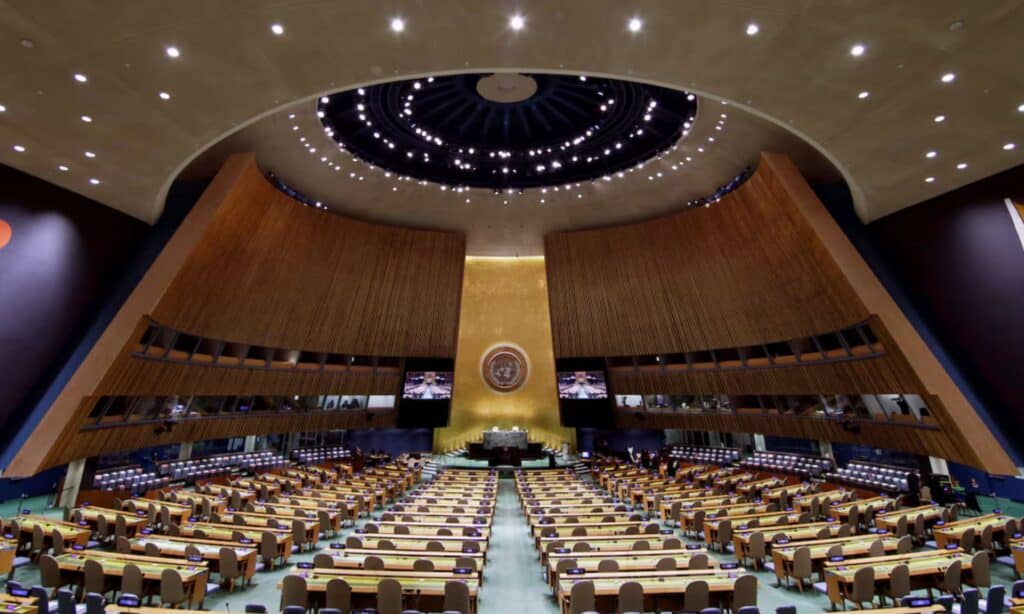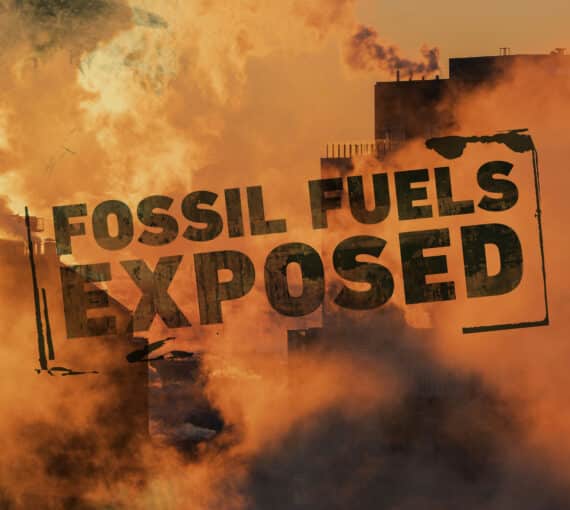
The David Suzuki Foundation climate team attending Climate Week in New York and offer a reflection: Canada should follow the global consensus and quickly move forward with climate solutions. (Photo: Reuters)
In September, the United Nations convened in New York to negotiate a Pact for the Future. It marks a pivotal moment in history. The choices made today to address the biggest challenges the world faces will have a huge impact on us and future generations. The Pact for the Future tackles peace and security, development finance and, of course, climate change.
It’s another climate milestone. World leaders have committed to accelerating the transition away from fossil fuels, tripling renewable energy and doubling energy efficiency.
With climate pressures mounting and communities around the world reeling under the impacts, it only makes sense that the Pact for the Future would reiterate promises agreed to at last year’s UN climate negotiations. It’s great to see them become the norm in international texts.
We’ve seen political leaders scapegoating pollution pricing, disingenuously citing affordability challenges. Affordability challenges are in large part a symptom of our dependence on fossil fuels. This politically motivated attack on key climate policies is dramatically out of touch with the international consensus.
However, discourse in Canada is out of touch as sloganized attacks on core climate policies dominate political debate. This is leading us away from real climate solutions. We’ve seen political leaders scapegoating pollution pricing, disingenuously citing affordability challenges. Affordability challenges are in large part a symptom of our dependence on fossil fuels. This politically motivated attack on key climate policies is dramatically out of touch with the international consensus. Simply put, this is no time to backtrack on climate action. Instead, we should be strengthening emissions-reduction policies.
We must follow the global consensus and act swiftly on the climate crisis. We need all Canadian political leaders to take their responsibility for maintaining a livable planet seriously, with a “made in Canada” Pact for the Future, including concrete actions to accelerate Canada’s transition away from fossil fuels.
We have a long way to go. New data from the Canadian Climate Institute shows that oil and gas industry emissions continue to rise and now represent 31 per cent of Canada’s greenhouse gas pollution. In 2021, the federal government pledged to cap emissions for the sector. Prime Minister Justin Trudeau repeated that promise in his address in New York. But his government has yet to produce even a draft regulation. We must cap this harmful fossil fuel industry pollution.
In 2021, the federal government pledged to cap emissions for the oil and gas sector. Prime Minister Justin Trudeau repeated that promise in his address in New York. But his government has yet to produce even a draft regulation.
Key federal policy levers to keep emissions trending downward include moving forward as quickly as possible to regulate the oil and gas industry’s emissions, putting in place clean electricity regulations to clean up Canada’s grid and shifting to renewable power, all while maintaining and strengthening measures already in place.
Some hope is coming out of Quebec. Montreal Mayor Valérie Plante and Quebec Environment Minister Benoit Charette are in New York to reiterate the importance of all levels of government taking climate action, both having recently adopted key policies to phase out fossil fuels.
Last year, wildfires in Canada blanketed New York with smoke. As world leaders agreed to the Pact for the Future, the sky might have been clear, but signs of the climate crisis remained, with deadly floods in Europe, the rainforest in Brazil on fire and Jasper beginning its slow recovery from a devastating fire — all fuelled by the world’s consumption of fossil fuels.
Although the Pact for the Future was not just about the climate crisis, we have to envision a world where the crisis is resolved. When will we have our own Canadian Pact for the Future, endorsed by all our political leaders?
Although the Pact for the Future was not just about the climate crisis, we have to envision a world where the crisis is resolved. When will we have our own Canadian Pact for the Future, endorsed by all our political leaders?
Related Projects
Always grounded in sound evidence, the David Suzuki Foundation empowers people to take action in their communities on the environmental challenges we collectively face.



